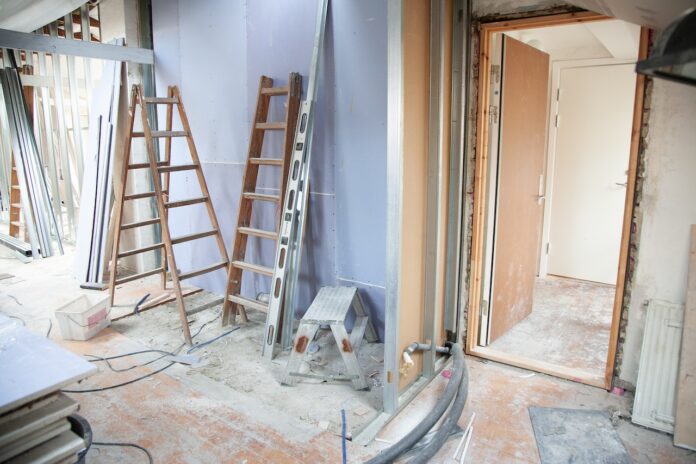- Study finds that one in five people wouldn’t have moved into their new home if they knew how much it cost to renovate
- Tapi reveal top tips for reducing the spend on ripping up and fitting new flooring
- Expert reveals tips on how to keep costs to a minimum when renovating a new home
There’s no doubt that it’s becoming more difficult to buy a home than ever before, with searches for ‘can I afford to buy a new house?’ up by +400% in the past 12 months.
With this in mind, experts at leading carpet and flooring retailer Tapi have conducted research to reveal the top renovations Brits undertake when they move into a new home, and how much they are spending on them on average. The research also reveals the percentage of Brits who regret moving into their new place as a result of their renovation spends.
Most common renovations made to a new home
Moving into a new place can be a lot of work, especially if you need to make serious changes upon moving in. Whether it’s making essential changes such as resolving damp or touching up unattractive paint jobs, or installing a new kitchen or bathroom, it’s important to account for extra costs after buying a home.
But what are the most common alterations made by Brits once they move home? According to our survey, the top five most common renovations, are:
- Painting – 44%
- Ripping up carpets or flooring– 34%
- Redoing the kitchen – 34%
- Redoing bathroom – 33%
- Renovating outdoor space – 29%
A staggering 61% of Brits have spent money on essential changes such as resolving damp, installing double glazing, insulation, and installing better heating or electricity systems according to our survey.
How much are Brits spending on renovating their new home?
Our study finds that the majority of Brits surveyed (17%) spend between £2,500-£5,000 on renovating their home. With the average cost of a home in the UK now standing at £274,0002, this is a considerable amount of spare cash needed top of the purchase price.
Interestingly, over 30% of people have spent over £10,000 on changes to their new place, and 6% have spent over £25,000. What’s more, 2% have had someone else pay for all their renovation work!
One in five surveyed (20%) Brits said they regretted purchasing their first home because of how much it cost to renovate.
—
If you’re about to, or have recently, moved into a new home and are looking to reduce renovation costs, Charlie Tuck, Trade Counter Manager at ADA Fastfix shares expert tips on how to reduce the spend when it comes to renovating your new home:
- Get multiple estimates from different contractors before settling on one. This will help you ensure that you’re getting the best deal possible.
- Have a realistic budget in mind from the start. This will help you avoid overspending and going into debt.
- Be prepared to do some of the work yourself. This can save you a lot of money, but it’s important to only take on tasks that you’re confident you can handle.
- Keep your old appliances and fixtures if they’re still in good condition. This can save you a lot of money since you won’t need to buy new ones.
- Be patient throughout the process. Rushing things can often lead to mistakes being made, which can end up costing you more in the long run.
Commenting on the research, Johanna Constantinou, Brand and Communications Director at Tapi says: “As if purchasing and renovating a new home isn’t enough of an expense, there are important steps in the process that can go overlooked if you’re rushing to get your perfect home sorted. We hope these insights and tips will help new homeowners undergo a smooth, efficient renovation with as little stress and expense as possible.”
To find out even more on this research, please visit: https://www.tapi.co.uk/the-ideas-hub/style-inspiration/the-true-cost-of-renovating-a-new-home
Help keep news FREE for our readers
Supporting your local community newspaper/online news outlet is crucial now more than ever. If you believe in independent journalism, then consider making a valuable contribution by making a one-time or monthly donation. We operate in rural areas where providing unbiased news can be challenging. Read More About Supporting The West Wales Chronicle






















